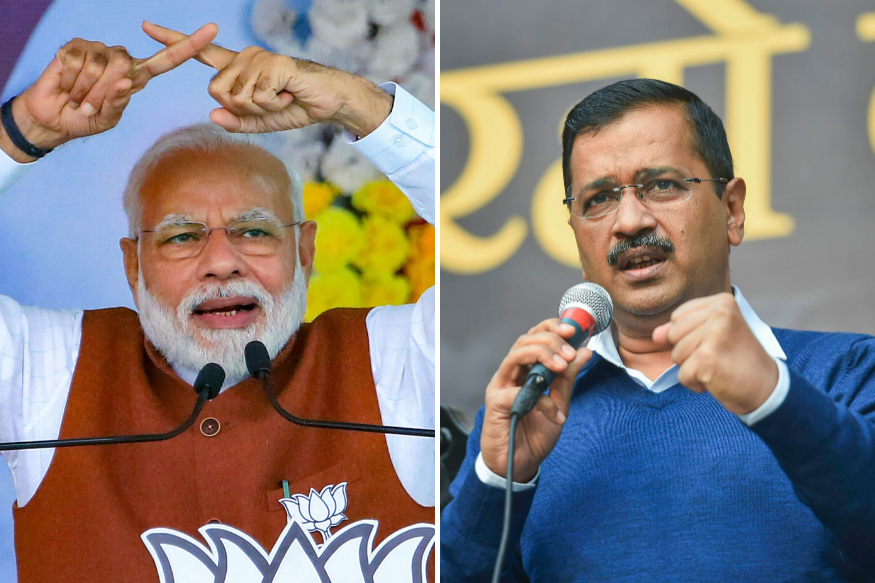Initial trends show Delhi’s governing Aam Aadmi Party leading in around 50 of the 70 seats in the Indian capital.
It’s ahead of Prime Minister Narendra Modi’s Bharatiya Janata Party (BJP), which is leading in around 20 seats.
TV exit polls have unanimously predicted that the incumbent Aam Aadmi Party (AAP) will return to power in Delhi with a comfortable majority, even as polling percentage this time across the 70 Assembly constituencies has declined to 62 per cent from a 67 per cent turnout seen in the 2015 Delhi Assembly election.
However, exit polls have not dampened the spirits of challenger Bharatiya Janata Party (BJP).
Delhi BJP chief Manoj Tiwari asserted that his party will win 48 seats in the 70-member Assembly and form the next government. “Our confidence is based on a micro analysis of all the seats. The exit polls are only rough estimates. I am confident that the BJP will form the government in Delhi with a full majority,” he said.
AAP’s Arvind Kejriwal, who had campaigned on education and healthcare, has been credited with turning around Delhi’s government-run schools, establishing affordable neighbourhood clinics, and providing cheap water and electricity.
The BJP’s campaign, on the other hand, centred on a peaceful protest in Shaheen Bagh – a largely Muslim neighbourhood – against India’s controversial new citizenship law, known as the Citizenship Amendment Act (CAA).
Delhi voted on 8 February after a high-pitched campaign that saw BJP heavyweights such as Home Minister Amit Shah take to the streets to woo voters.
If the AAP retains power, it will be the third straight electoral setback for the BJP, which earlier failed to form state governments in Jharkhand and Maharashtra last year.





